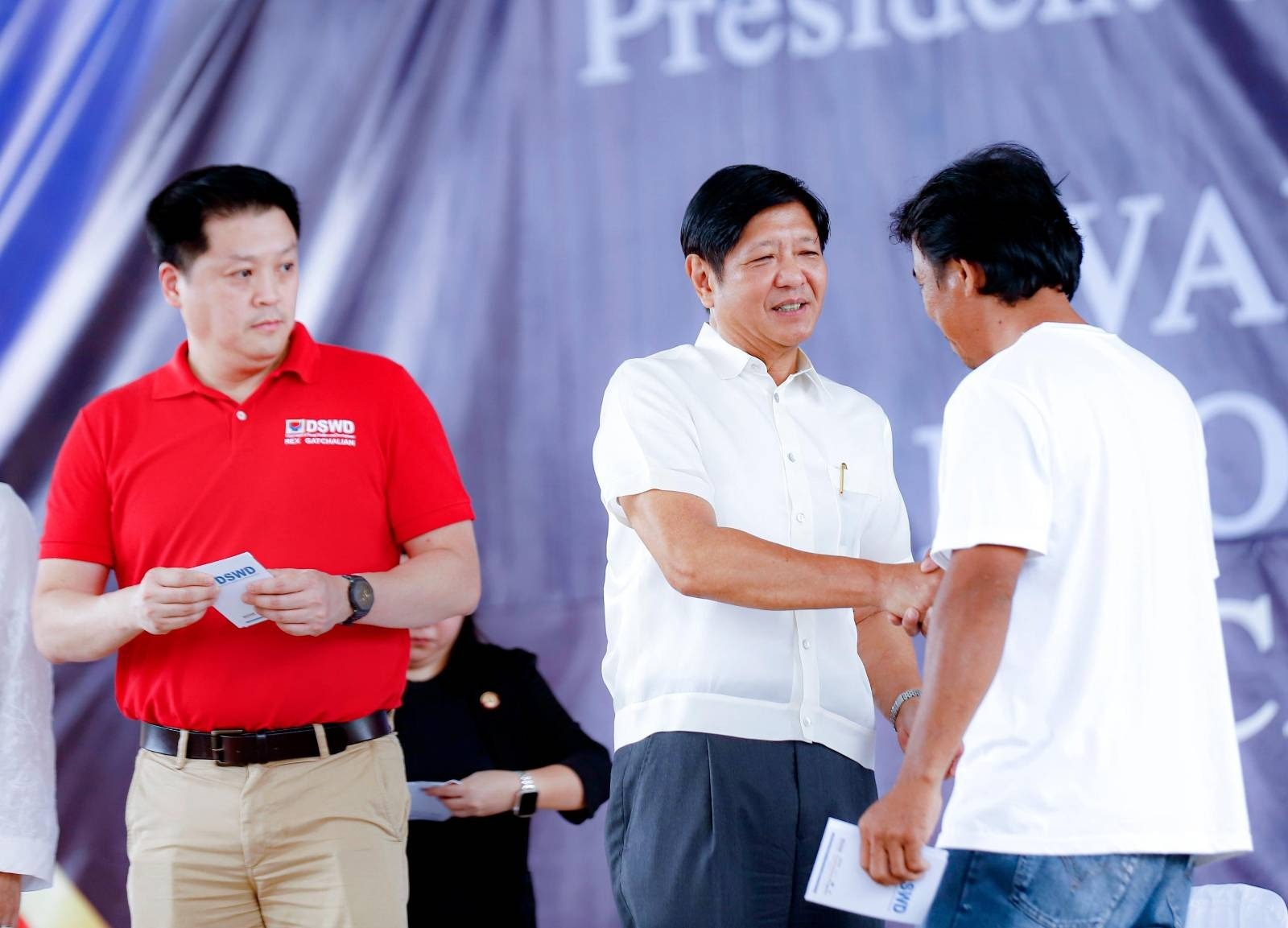Gov't to expand DSWD's food stamp program — PBBM
At A Glance
- To date, the FSP has 100 beneficiaries nationwide. The DSWD pilot-tested the FSP on July 18 in Tondo, Manila.
- Marcos says they are looking to have 3,000 families to be beneficiaries of the program.
President Marcos announced that the government is looking into expanding the Department of Social Welfare and Development (DSWD) 's Food Stamp Program (FSP) to other parts of the country starting next month, citing its successful launch on Sept. 29.

Marcos said this after he led the program launch in Siargao Island, Surigao del Norte, on Friday.
In an interview following the event, the President said he was glad the FSP was proceeding smoothly.
"We will be upscaling it within the next month or so," he said.
"We are aiming at the next phase of this rollout. We are already looking at 3,000 families to be beneficiaries," he added.
To date, the FSP has 100 beneficiaries nationwide. The DSWD pilot-tested the FSP on July 18 in Tondo, Manila.
On Friday, Marcos led the distribution of Electronic Benefit Transfer (EBT) cards, loaded with P3,000 food credits, to at least 50 beneficiaries in Siargao Island.
Even though the FSP had just started, the President thought it was giving promising results but said they must make it accessible to ordinary citizens, especially in the far-flung areas.
According to Marcos, they are carrying out the FSP to fight hunger and ensure the well-being of the beneficiaries through better food nutrition through the EBT cards.
Meanwhile, Marcos thanked international sponsors such as the United Nations' World Food Programme, the Asian Development Bank (ADB), and the government of France for helping the Philippines in realizing the FSP.
The grant of US$3 million came from France, ADB, and the Japan International Cooperation Agency. Next year's target would be 300,000 households.
The FSP aims to decrease the incidence of involuntary hunger through available and accessible nutritious food for less fortunate households while helping address nutritional concerns.
It provides cash-based assistance in the form of EBT Cards.
According to the Presidential Communications Office (PCO), the DSWD submitted a draft executive order declaring the FSP as a government flagship program, directing all national government agencies, local government units, and government-owned or -controlled corporations to support its implementation.
"The draft is currently being reviewed by the Office of the Deputy Executive Secretary for General Administration," it said.